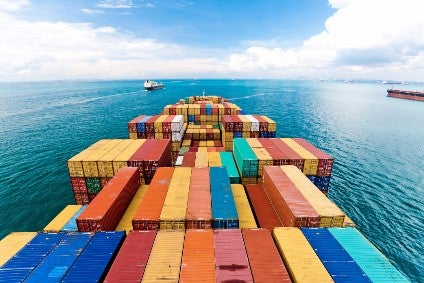
Digital technologies – namely the Internet of Things, artificial intelligence, 3D printing and blockchain – are set to have a profound impact on global trade in terms of lowering costs and boosting productivity, but they could also create challenges, the WTO warns.
According to the 2018 edition of the World Trade Organization’s flagship publication, the World Trade Report, digital technologies are likely to further reduce trade costs and boost trade significantly, especially in services and for developing countries.
Global trade is projected to grow by an additional 2 percentage points annually between 2016 and 2030 as a result of digitalisation, falling trade costs and the increased use of services. This corresponds with a 31-34 percentage point higher trade growth over 15 years.
In particular, micro, small and medium sized enterprises (MSMEs) and firms from developing countries are expected to benefit from a reduction in trade costs provided they have the ability to keep up with the adoption of digital technologies.
In the best scenario, developing and least-developed economies’ share in global trade is predicted to grow to 57% by 2030, from 46% in 2015, there report found, whereas if they cannot keep up, this share is predicted to rise to 51%.
In reducing trade costs, certain AI applications can benefit trade in goods, for example by optimising route planning and enabling autonomous driving, reducing logistics costs through cargo and shipment tracking, using smart robots to optimise storage and inventory, and integrating 3D printing in order to reduce the need for transport and logistics services.
How well do you really know your competitors?
Access the most comprehensive Company Profiles on the market, powered by GlobalData. Save hours of research. Gain competitive edge.

Thank you!
Your download email will arrive shortly
Not ready to buy yet? Download a free sample
We are confident about the unique quality of our Company Profiles. However, we want you to make the most beneficial decision for your business, so we offer a free sample that you can download by submitting the below form
By GlobalDataBlockchain solutions can reduce time spent on customs compliance and logistics, while the Internet of Things can help to improve operational efficiency through better preventative maintenance of machinery and products.
New technologies can thereby reduce trade costs by reducing transportation and storage costs, but also by reducing time to transport, as well as the uncertainty of delivery times due to better logistics. These costs represent a major share of overall trade costs and therefore their reduction can have a large potential impact on trade flows, the report explains.
The report, however, argues that new technologies are likely to change the established ways the world trades, with comparative advantages predicted to change across economies.
AI, 3D printing and advanced robotics could reduce the role of labour as a source of comparative advantage, the report notes, while factors such as the quality of digital infrastructure and market size as well as institutional and regulatory determinants of comparative advantage, including intellectual property protection, might become more relevant.
3D printing, furthermore, may to some extent reduce the need for outsourced assembly, the number of production steps and other factors related to global value chains.
The report also details the challenges related to the Internet of Things. “The deployment of connected devices, many of which were designed without much thought for security, can contain dangerous vulnerabilities. Connecting large numbers of new devices to the internet can create serious bottlenecks in telecommunication systems.”
AI, meanwhile, has reached a lot of important milestones, but numerous technical challenges still lie ahead of it, including certain cognitive tasks that people often undertake without thinking, such as perceiving and navigating their physical environment.
And the primary issue with blockchain, at present, is in its scalability, which remains limited. The report explains that existing blockchain networks and platforms do not “talk” to one another, and there are a number of unresolved legal issues, ranging from the legal status of blockchain transactions to the question of liability.
“The expansion of digital trade holds the potential to generate considerable benefits, in particular if it takes place under conditions that adequately address important public policy challenges,” the WTO report notes. “Issues concerning inclusiveness, privacy protection and cybersecurity are likely to figure prominently in debates on the future governance of digital trade. International cooperation has an important role to play in helping governments to ensure that digital trade continues to be an engine of inclusive economic development.”
Click here to view the full report.



